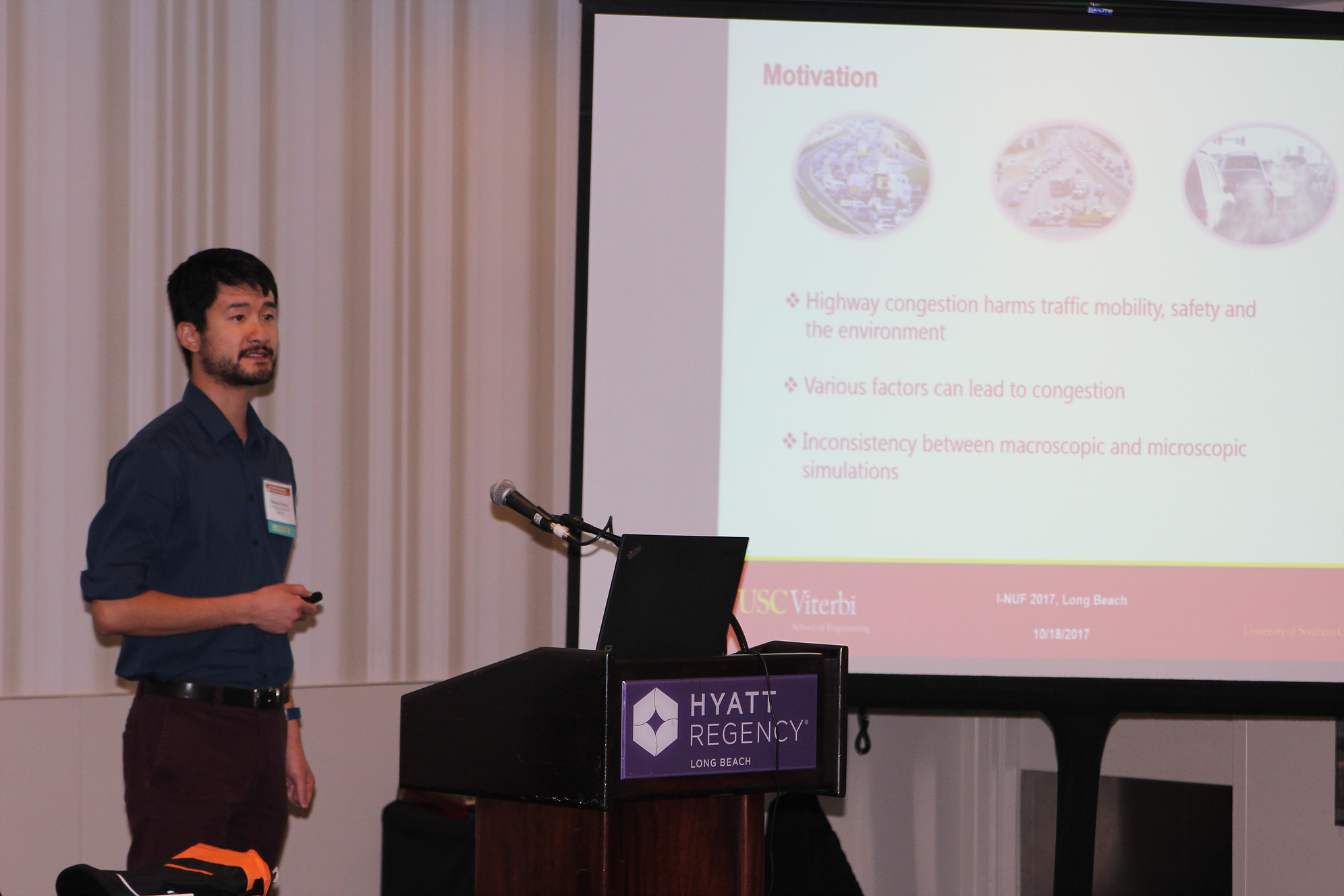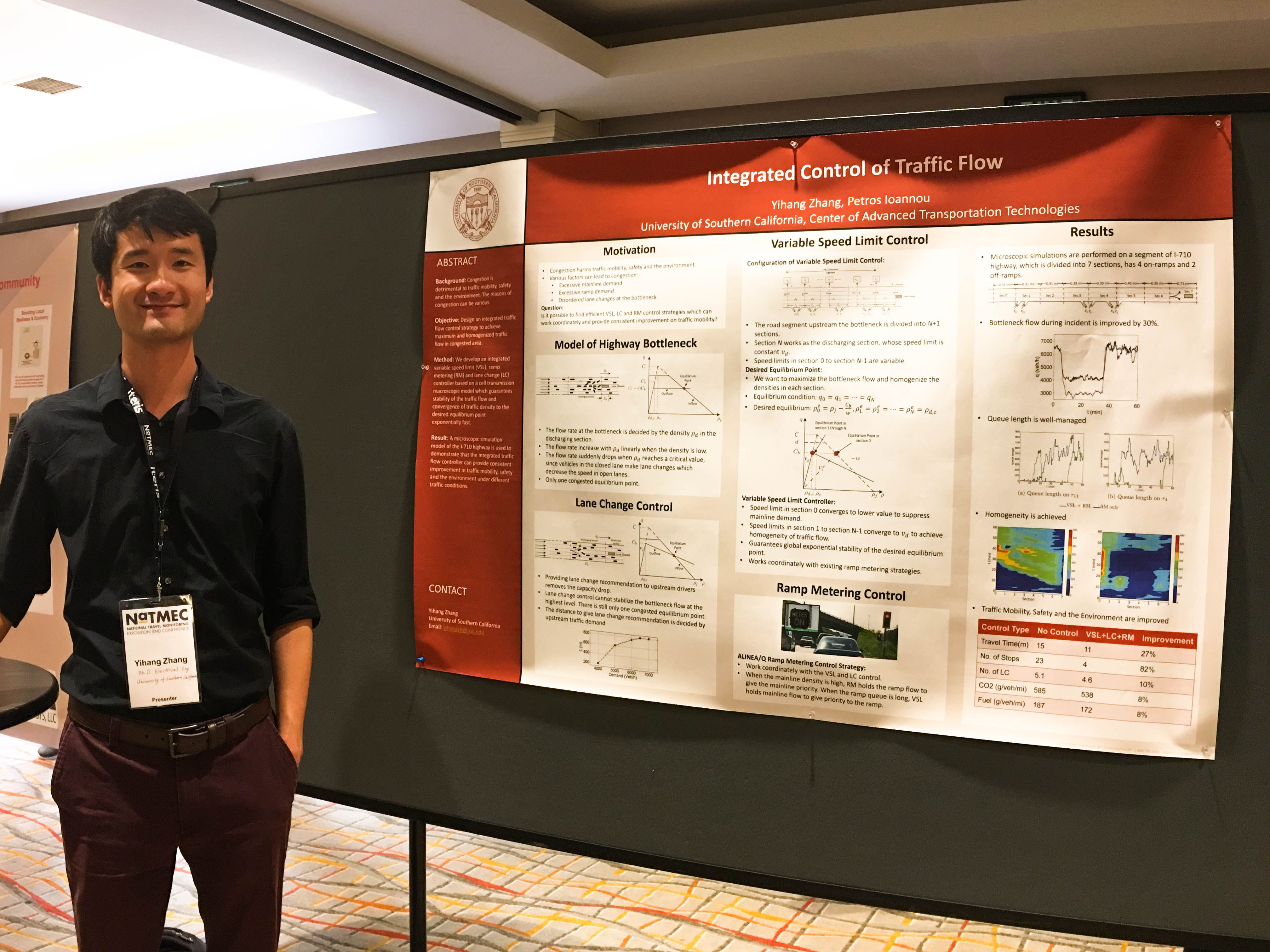News | USC Alum Yihang Zhang Joins Aptiv
Stop the VideoNews

by By: Adylbek Abdykalikov, USC, IPPAM 2020
Newly minted Doctor Yihang Zhang (December, 2018) launched his career by joining the global transportation technology company, Aptiv, one of the world’s largest supplier of autonomous driving systems and solutions, as a Machine Learning Scientist for Autonomous Driving. There he is in charge of developing machine learning models and techniques for the perception systems of autonomous vehicles. “Aptiv is a great place for me to combine my Ph.D. research topic with industrial development,” Zhang shared. “My position at Aptiv has brought my pursuit of intelligence and mobility to a new level.”

Zhang was born and raised in the city of Xi’an, the ancient capital of China. He received his bachelor’s and master’s degrees in 2010 and 2013 respectively - both from the Northwestern Polytechnic University in China. His research was focused on UAV trajectory planning, design of flight control, and guidance systems, and during his study, Zhang had the opportunity to be the intern flight test engineer in GE Aviation (China).
Zhang continued his education as a doctoral student at the Ming Hsieh Department of Engineering, Viterbi School of Engineering, University of Southern California (USC) with the aid of a provost fellowship. Advised by Prof. Petros Ioannou, Zhang’s research focused on solving urban traffic problems with intelligent transportation techniques. Through this work, he developed innovative traffic flow control strategies to improve traffic mobility, safety and the environmental. In his dissertation, “Integrated Control of Traffic Flow,” he examined the dynamics and stability properties of traffic flow models and proposed an integrated variable speed limit, lane change, and ramp metering control strategy which is able to stabilize the traffic flow at the optimal point, therefore significantly improving the traffic conditions. The results of the work were validated by both rigorous theoretical proof and intensive macroscopic and microscopic simulations.
While at USC, Zhang lead the team of six doctoral students who tackled the joint USC/Los Angeles World Airport project, “Road Trac Simulation and Estimation for Los Angeles World Airport.” In this project, Zhang and his colleagues built a traffic simulator for the urban transportation network near the Los Angeles airport area with PTV-VISSIM/Python, estimating the origins and destinations of traffic flow using machine learning techniques. The simulator is now used by LAX to test traffic control strategies.

Dr. Zhang says that for him, personally, the most important things he took away from his Ph.D. study at USC were both the research discoveries and conclusions and, perhaps more importantly, the way to think critically and tackle a problem from beginning to end. He advises students to be patient, stick to the problem that one is interested in, and train for the ability to solve a problem. “In this process, one can have breakthroughs, achievements, and failures. One can also experience happiness, excitement, and frustration, all of which are necessary to make innovations and technical contributions in your chosen field.”
About the Author:
Adylbek Abdykalikov is a graduate student of International Public Policy and Management Program at USC Price. He has working experience in various positions at the Ministries of Transport and Communication and Investment and Development of Kazakhstan and was in charge of Transportation and Civil Aviation policy development and implementation.
News Archive
- December (1)
- November (6)
- October (4)
- September (2)
- August (3)
- July (4)
- June (3)
- May (7)
- April (8)
- March (11)
- February (8)
- January (7)
- December (7)
- November (8)
- October (11)
- September (11)
- August (4)
- July (10)
- June (9)
- May (2)
- April (12)
- March (8)
- February (7)
- January (11)
- December (11)
- November (5)
- October (16)
- September (7)
- August (5)
- July (13)
- June (5)
- May (5)
- April (7)
- March (5)
- February (3)
- January (4)
- December (4)
- November (5)
- October (5)
- September (4)
- August (4)
- July (6)
- June (8)
- May (4)
- April (6)
- March (6)
- February (7)
- January (7)
- December (8)
- November (8)
- October (8)
- September (15)
- August (5)
- July (6)
- June (7)
- May (5)
- April (8)
- March (7)
- February (10)
- January (12)















